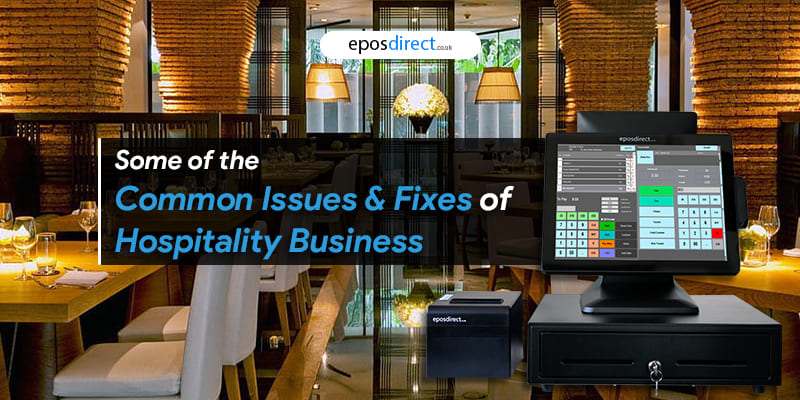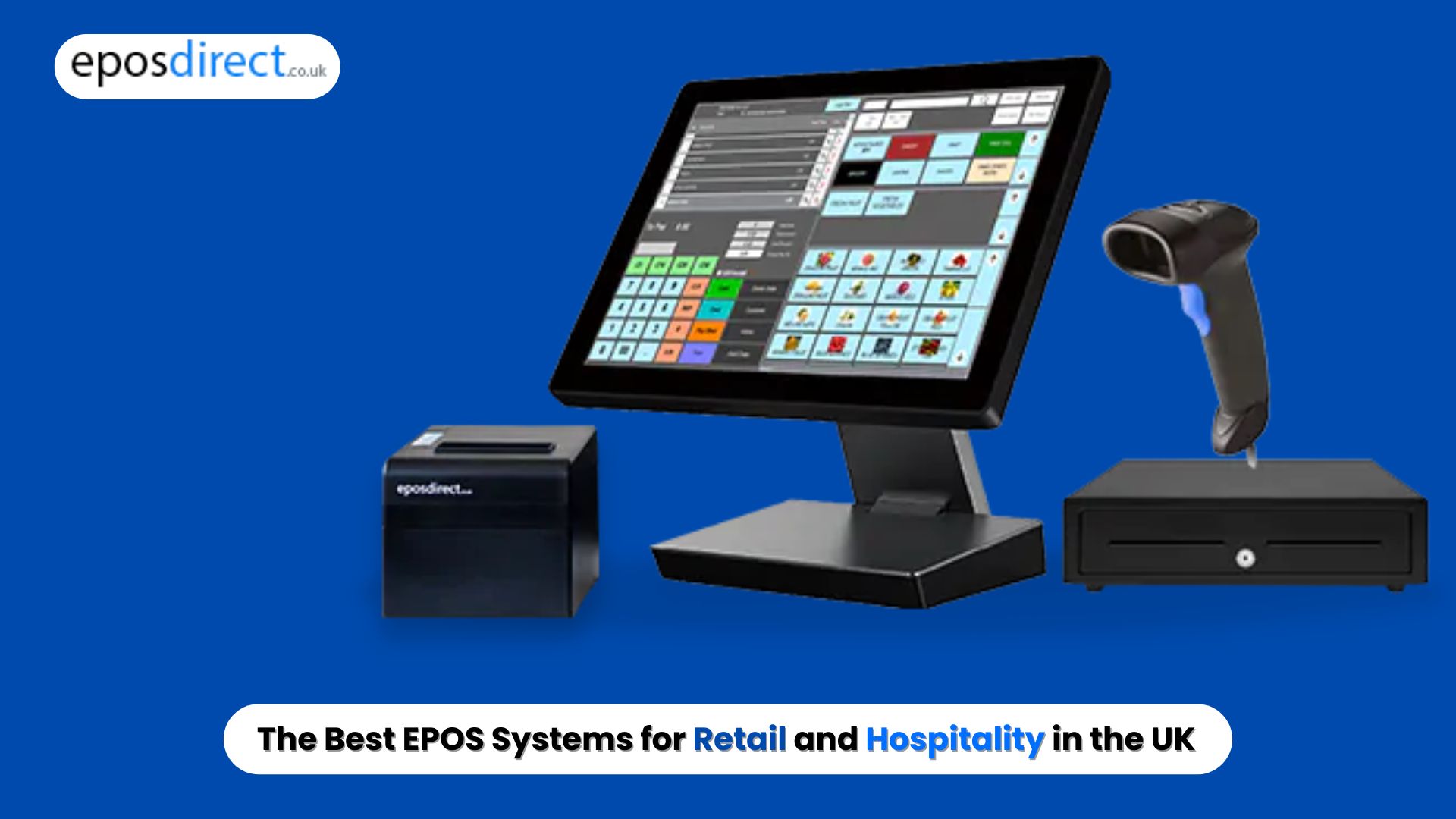We use cookies to make your experience better.
To comply with the new e-Privacy directive, you agree to the privacy policy and our use of cookies
Some of the Common Issues and Fixes of Hospitality Business

Find out some of the common restaurant problems and solutions. From HR to inventory management, we've got you covered. Boost your business today!
Welcome to the world of hospitality industry, where food, drinks and good times are on the menu! However, being a owner doesn't mean sunshine and rainbows.
As an owner, you know better than anyone the headaches of running a successful hospitality business. From managing employees to satisfying new customers, countless problems can arise on a daily basis. But the good news is that every problem has a solution. And in this guide, we will discuss some of the most common recovery problems and their solutions. So sit back and dive into the world of recovery problems and solutions!
The importance of solving restaurant problems
The restaurant industry is a tough business and hoteliers will tell you that problems always need to be addressed. Whether it's minor issues like a customer's request for more sauce or more serious issues like a kitchen fire, there's never a dull moment in the hospitality world. But why is it so important to address these issues in a timely and effective manner? Let's break it down.
Keep your potential customers happy
Above all, solving problems is crucial to keeping your customers happy. When something goes wrong in your restaurant business, your customers will likely notice. And if they're not happy with how the problem was handled, they may not come back.
Word of mouth is a powerful tool in the hospitality industry, and you want to make sure your customers are saying positive things about their experience at your establishment.
Maintain your reputation
Speaking of word of mouth, solving issues is also important to maintaining your business reputation. In today's age of online reviews and social media, a single negative experience can quickly spread and damage your business reputation.
By resolving issues quickly and efficiently, you can show your customers that you care about their experience and are committed to providing excellent service.
Improve your performance
Restaurant troubleshooting can also help improve your restaurant operations. As you identify and fix problems, you can learn from them and make changes to prevent them from recurring. It can lead to a more efficient and successful.
Common restaurant problems and how to fix them
Let's take a look at some of the most common issues you might encounter and how to fix them.
- Cost of restoration
Hospitality owners know very well that managing expenses is an important part of staying in business. Two of the biggest costs are food and labor costs. Let's say you own a busy restaurant that serves breakfast, lunch, and dinner. You find that your food and labor costs have increased, but your sales are not growing at the same rate. It can lead to a drop in profit margins, which is a big deal for any business. Food cost is the cost of the ingredients that go into each dish. Here are some tips to help you manage food costs:
- Regularly review your menu to see what's popular and profitable, and which isn't.
- Buy ingredients in bulk to take advantage of bulk discounts.
- Negotiate with suppliers for better prices.
- Carefully monitor inventory to avoid waste and damage.
- Avoid portioning too many servings or serving dishes that are too large.
Labor costs include the cost of paying your employees. Here are some tips to help you manage labor costs:
- Train your employees to be efficient and productive.
- Schedule employees based on business needs to avoid overstaffing or understaffing.
- Consider offering perks or incentives to retain quality employees.
- Use technology, such as scheduling software, to streamline workforce management.
- Train your staff so they can replace each other if necessary.
In addition to managing food and labor costs, here are other ways to save money and increase your restaurant's revenue:
- Offer special offers or promotions to attract customers.
- Sell to customers by suggesting additional or complementary menu items.
- Set up a loyalty program to encourage repeat customers.
- Renegotiate contracts with suppliers or service providers.
- Consider raising prices if necessary, but be aware of customer perceptions.
By closely monitoring your costs and implementing these cost-effective solutions, you can improve your restaurant's bottom line and ensure its long-term success.
- Outdated technology
In today's digital age, outdated technology can be a real headache for owners. Luckily, there are a few things you can do to modernize your technology and stay ahead of the competition:
Invest in a modern hospitality POS system: A POS system can help streamline your ordering process, reduce errors, and track sales and inventory in real time. Look for a system that integrates with your other technology, such as a kitchen display system or an online ordering system.
Upgrade your kitchen equipment: If your kitchen equipment is old and inefficient, it can slow down your operations and reduce the quality of your food. Consider upgrading to newer, more energy-efficient appliances that can help you cook faster and more consistently.
Embracing mobile technology: Many restaurant customers now expect to be able to order and pay for food using their mobile devices. Consider investing in a mobile app or mobile-friendly website that allows customers to easily order and pay online.
Offer Delivery: With the proliferation of food delivery apps, offering delivery services can be a great way to expand your customer base. Consider investing in a delivery management system to help you manage your orders, track deliveries, and ensure on-time deliveries.
Automate your inventory management: Tracking inventory can be a time-consuming and error-prone process. Consider using POS software to automate your inventory management so you always know what you have in stock and when you need to order more.
Train employees on new technology: Introducing new technology can be a challenge if your employees are not properly trained. Be sure to provide comprehensive training on any new technology you introduce so your employees can use it confidently and effectively.
- Customer complaints
Customer complaints are a common problem in the hospitality industry, and they can be especially damaging in the age of online reviews and social media. Let's say a customer leaves a negative review of your restaurant on Yelp or Google. Hundreds or even thousands of people may see this negative review, which can hurt your reputation and profits. So how can you effectively handle customer complaints? Here are three steps you should always follow:
- Train your staff to handle complaints with empathy and professionalism. Make sure they listen carefully to your customer's concerns and respond calmly and respectfully.
- Take action to fix the problem as soon as possible. For example, if a customer complains about the quality of their food, offer to replace the dish or give them a discount on the bill.
- Follow up to make sure the issue has been resolved and you've achieved good customer satisfaction. It shows that you value their feedback and care about their experience.
Effectively resolving customer complaints can turn a negative experience into a positive and even lead to greater customer loyalty. By taking the time to listen to your customers and address their concerns, you can improve the overall experience for all who visit your establishment.
- Slow service
Slow service is one of the most common issues in the hospitality business that can negatively impact the customer experience. Let's say you run a busy restaurant with a large number of customers and you struggle to meet demand during peak hours. Here are some tips for dealing with slow service:
- Full staff at peak times: Make sure you have enough waiters, hosts, and kitchen staff to handle the influx of customers. Overworked staff can lead to burnout, which can exacerbate slow service.
- Streamline your kitchen operations: Identify bottlenecks in your kitchen that can cause delays, such as inefficient workflows or outdated equipment. Making activity changes can help reduce wait times and improve the overall dining experience.
- Offer free drinks or appetizers to customers with unusually long waits: It can help soothe frustrated customers and show that you appreciate their business.
By addressing slow service, you can improve customer satisfaction and increase customer retention. Additionally, providing quick and efficient service can help differentiate your restaurant from your competitors and attract new customers.
- Poor quality, food hygiene and safety
Poor food quality and food safety are serious issues for any restaurant, and effective restaurant management requires a proactive approach to these challenges. Let's say you run a small bistro that specializes in handcrafted menus. To ensure customer retention and a positive dining experience, you need to address these issues from the start.
Here are some tips for addressing food safety and quality issues in your restaurant:
- Train staff in proper food handling and preparation techniques: It includes washing your hands often, wearing gloves, and keeping food at the right temperature. Proper training can help prevent food safety problems and ensure your customers receive safe, high-quality meals.
- Regularly check your ingredients for freshness and quality: Immediately throw away any expired or damaged items. It can help you avoid poor quality menu items that can affect the customer experience. Collect customer feedback on the taste and quality of your dishes. It can help you identify areas for improvement and make the necessary adjustments, which can improve the overall dining experience.
- Keep your kitchen clean and organized: Minimizing the risk of contamination or other food safety hazards.
By taking a proactive approach to food quality and safety, you can ensure that your restaurant provides a positive and safe dining experience for your customers. It can lead to repeat business and a positive reputation in the community.
- Employee dissatisfaction
High employee turnover due to employee dissatisfaction is a major challenge for many restaurants. Dissatisfaction can also come from many sources – from lower wages compared to your local competitors or market rates, to not feeling part of a group. It makes it difficult to retain quality catering staff! Many restaurants find themselves in this situation. But there are several solutions that can help improve employee satisfaction and reduce revenue.
Here are some tips for dealing with employee dissatisfaction:
- Offer recognition and rewards to employees for outstanding performance, accepting last-minute or overtime shifts, or achieving goals.
- Create opportunities for career development and advancement within the company.
- Conduct regular employee surveys and take their concerns seriously.
- Create a positive work environment by cultivating a culture of respect and teamwork.
- Provide fair compensation and benefits such as health insurance, paid vacations and pension plans.
By addressing dissatisfaction, you can reduce high turnover rates and build a strong, loyal team. Additionally, a happy and motivated staff can lead to better customer service and an overall positive dining experience for your customers.
- Restaurant Marketing Challenge
Marketing plays a vital role in the success of any business, but many hospitality owners struggle to effectively market their business. Poor marketing can lead to low customer engagement, lower sales, and lack of brand awareness.
Advantages of being online:
Without a strong online presence, customers may not find your restaurant or skip it to make room for competitors with better marketing strategies. Poor marketing can also lead to confusion about a restaurant's unique selling point or menu offerings, making it difficult to attract new customers and encourage customer retention. "Online" means using email, having a website, using social media, etc. - like using your Google Business Profile to rank in local search results.
Why you need to be on social media:
Not keeping up with market trends or neglecting social media marketing can also leave your restaurant in the dust as competitors rush in. Keeping up to date with the latest trends and engaging with customers on social media is vital to building a strong brand reputation and creating buzz around your delicious dishes. When it comes to choosing which platform to use; choose the social media platform your customers use the most - instead of the one you love the most! After all, you want to make sure that your posts and ads reach your target audience.
Building a marketing strategy:
To avoid these problems, restaurant managers should invest time and resources in developing a comprehensive marketing strategy that includes a strong online presence, promotions and partnerships with local influencers. You should use a mix of marketing channels to maximize your strategy - from email to website updates to social media. Following market trends and interacting with customers on social media can also help your restaurant stay noticed and attract new customers.
Final thoughts
Running a successful hospitality business requires a combination of factors, including excellent customer service, a unique selling proposition, and a strong online presence. By providing exceptional service to your customers, you can build a positive reputation to attract potential customers and keep them coming back for more. Additionally, a clear and unique selling proposition can differentiate your restaurant from your competitors and make it stand out in the crowded restaurant market.
Having a strong online presence is also essential in today's digital age. Your restaurant should have an active website and social media accounts that showcase your delicious dishes, highlight customer reviews, and provide potential customers with a convenient way to find your food and contact your restaurant.
Ultimately, the key to running a successful hospitality business is to continually evaluate and improve your operations. Regularly assess your food and labor costs, test new menu items and stay on top of hospitality industry trends to stay ahead of the competition. By taking these steps and providing an exceptional experience for your customers, you can create a successful and profitable hospitality business.







